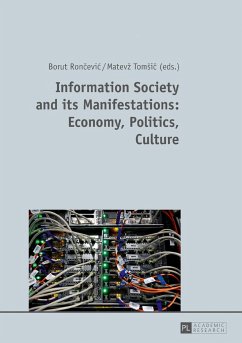
Technology and Social Choices in the Era of Social Transformations
Versandkostenfrei!
Versandfertig in 6-10 Tagen
60,50 €
inkl. MwSt.

PAYBACK Punkte
0 °P sammeln!
From the dawn of humanity, the dialectic relationship between technology and society has been one of the driving forces behind changes in both realms. Trends in technological developments and their applications are, ultimately, the result of individual and collective choices. At the same time, technology influences the social choices of individuals, small groups and entire societies. This book focuses on two closely related ideas: technological development and social choices. While relating them, the book shows the relationship between human individuals and their agency; social structures, bot...
From the dawn of humanity, the dialectic relationship between technology and society has been one of the driving forces behind changes in both realms. Trends in technological developments and their applications are, ultimately, the result of individual and collective choices. At the same time, technology influences the social choices of individuals, small groups and entire societies. This book focuses on two closely related ideas: technological development and social choices. While relating them, the book shows the relationship between human individuals and their agency; social structures, both as the initial context and as resulting from human agency; and technology that has been developed and applied by human agents' choices within social contexts.












